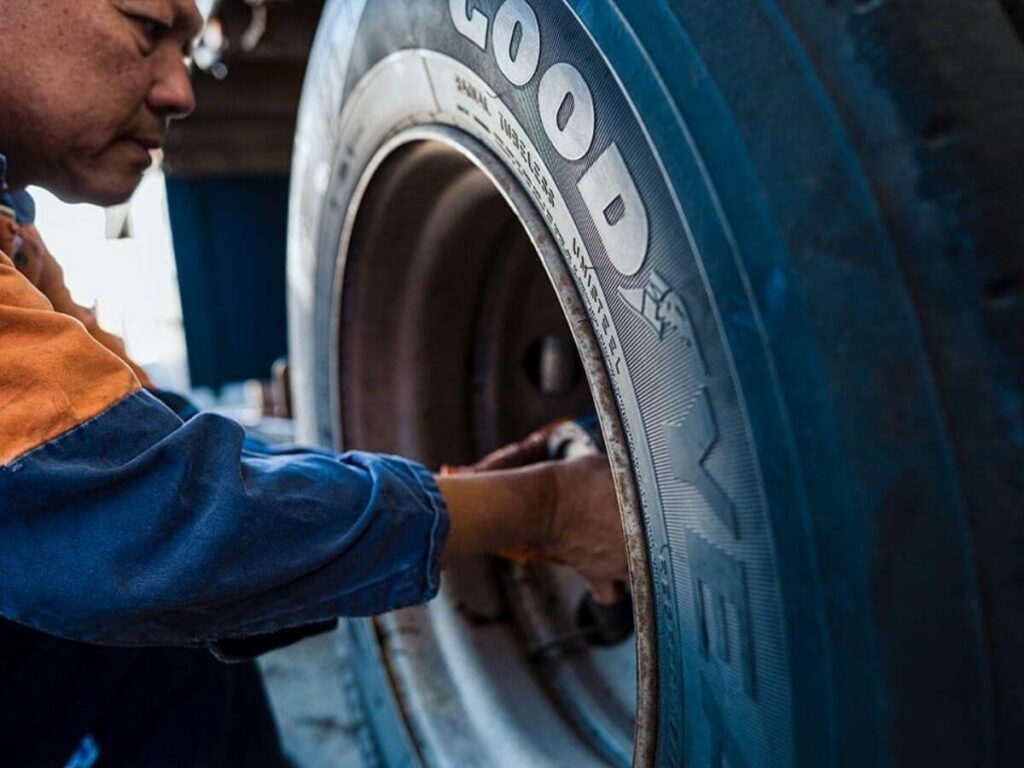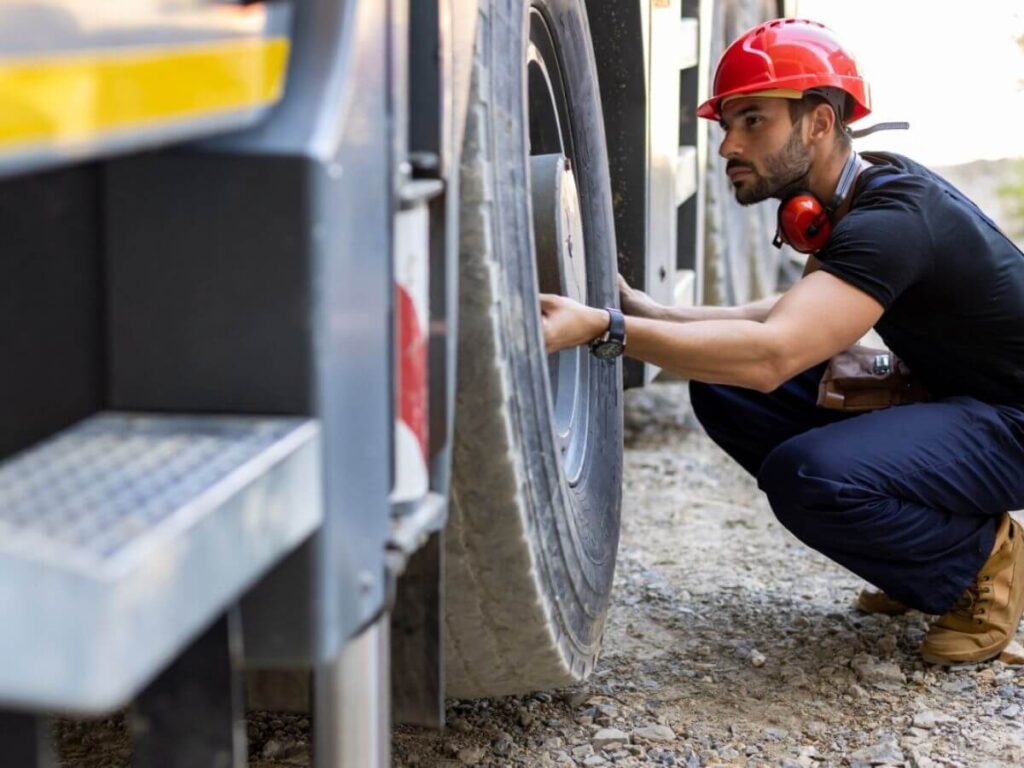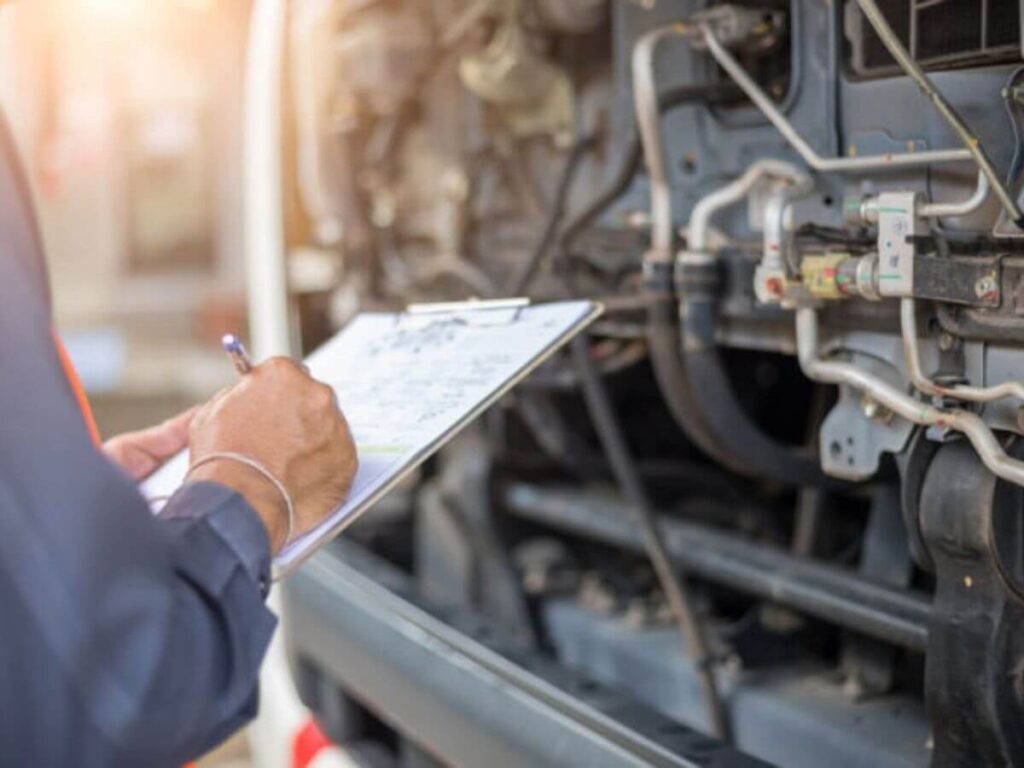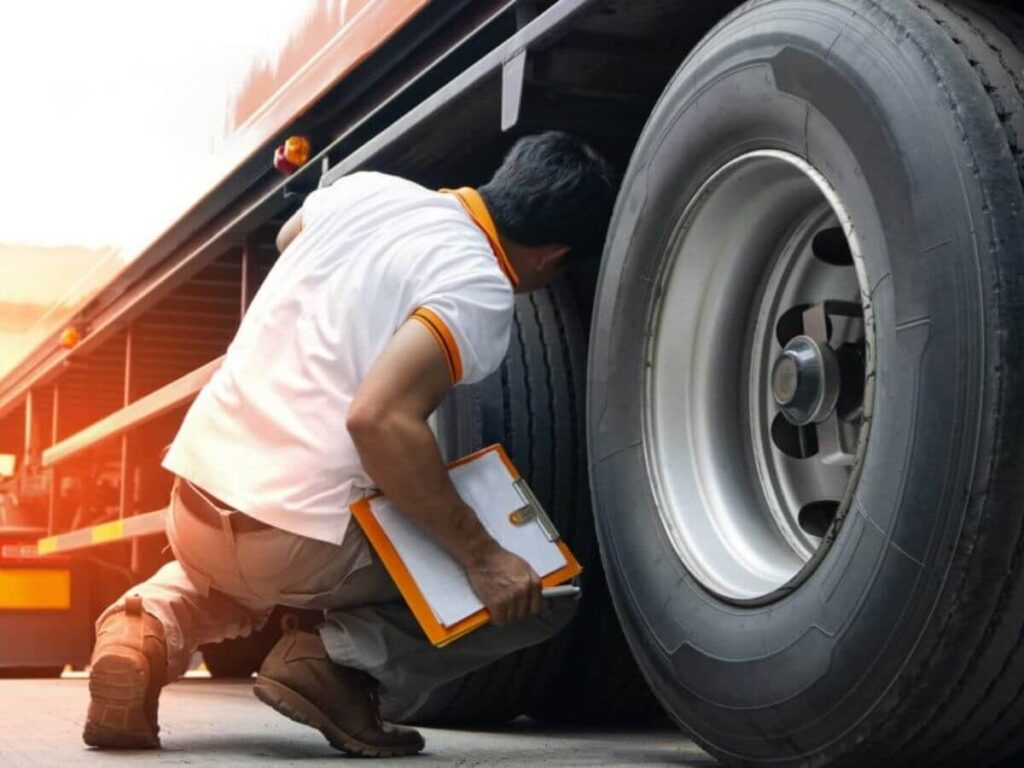Last winter, a friend of mine hauling equipment for a road project lost control on a slope. Turns out, his trailer brakes hadn’t been checked in over a year. Thankfully no one was hurt—but the damage was heavy.
That story hit me hard. I’ve been in this business long enough to know how fast things can go wrong.
So if you’re here wondering, “How often should I service my trailer?”—you’re asking the right question. And asking at the right time.
Here’s what this article will cover:
- Simple service timelines by trailer type and industry
- What happens if you wait too long
- Key areas to check every time
- How to track your maintenance without guessing
By the end, you’ll walk away with a clear plan and a few tools to help you avoid surprise repairs down the line.
Let’s dive in!
1. Signs Your Trailer Needs Immediate Servicing
I’ve made the mistake of brushing off small issues—until they became big ones. A trailer doesn’t just break down overnight. It gives you warnings. You just have to notice them.
Here are the signs to watch for:
- Abnormal Tire Wear: If one tire is wearing down faster than the others, your alignment or suspension might be off. This can lead to a blowout if ignored.
- Brake Noise or Poor Stopping Power: Grinding, squealing, or weak braking means your brake pads or system need attention. I once ignored this, and stopping became a real problem.
- Light Malfunctions: Flickering or dead lights often point to bad wiring or corroded connectors. It’s not just unsafe—it can get you ticketed.
- Swaying or Uneven Towing: If your trailer pulls to one side or feels unstable, it could be a frame issue or uneven load. This affects your control, especially on highways.
- Rust or Cracks on the Frame: Small rust spots grow fast. Cracks or deep rust on your frame are signs of real structural damage.
- Leaking Seals or Greased Components: If you see grease leaking near hubs or axles, the seals might be worn. That can lead to overheating or parts locking up.
These signs are your early warnings. Listen to them. It’s a lot easier to service a trailer in your shop than on the side of the road.
At Rhinotrail, our trailers are built with Q345B/Q460C high-strength steel and anti-corrosion coatings. However, like any vehicle exposed to the elements and heavy loads, routine servicing is essential to maintain safety and extend longevity.
2. General Trailer Servicing Frequency
How often should you service your trailer? That depends on how you use it—but one thing’s for sure: regular service keeps your trailer safe, working right, and on the road longer.
Below is a basic guide I follow for different service intervals. It’s worked well for my own trailers and those I’ve helped maintain over the years.
Monthly or Every 1,000 Miles
These are quick checks you can do often—even during downtime:
- Check Tire Pressure and Tread Wear: Look for balding or uneven wear.
- Test Your Brakes: If they feel soft or sound odd, something’s wrong.
- Inspect Lights and Signals: Faulty lights are a safety hazard and may get you fined.
- Look Over Safety Chains, Couplers, and Hitches: Loose parts can fail when you least expect it.
Quarterly or Every 3,000 Miles
Take a deeper look every few months, especially if you haul heavy loads:
- Inspect the Suspension and Axles: Look for sagging, cracks, or rusted bolts.
- Grease Key Parts: Bearings, joints, and hubs need to stay lubricated to prevent wear.
- Clean and Dry Electrical Connectors: Corrosion from water or road salt can mess with your wiring.
- Scan for Rust on the Frame: Even surface rust can spread quickly if ignored.
Annually
Once a year, it’s time for a full check-up:
- Do a Full Brake System Inspection: Pads, drums, rotors, and brake lines all matter.
- Replace Worn Seals: Leaking grease means damaged parts are likely coming next.
- Review Your Past Service Logs: This helps catch patterns and avoid repeating past issues.
- Update Parts That Are Aging Out: Even if they haven’t failed yet, older components wear down quietly.
There’s no one-size-fits-all rule for trailer servicing. But if you stick to a simple routine like this, you’ll avoid surprises. It’s what’s kept my trailers rolling—and my deliveries on time.

3. Key Components That Require Routine Servicing
I used to think checking tires was enough. But after a brake failure on a loaded trailer, I realized there’s more going on underneath. Since then, I’ve learned to pay attention to all the moving parts that keep a trailer safe and reliable.
Brakes
Your trailer’s brakes take on a lot of stress—especially when hauling heavy loads. Over time, the brake pads wear down and the rotors or drums can get damaged. If your stopping feels weak or delayed, your system likely needs work. Even the brake controller in your cab can wear out, and you need it to be responsive at all times.
Tires and Wheels
Tires might look fine on the outside, but hidden issues can cause serious problems. Bald spots, low tread, or uneven wear usually mean deeper issues like poor alignment or suspension trouble. Wheel bearings also need regular greasing to avoid friction and overheating.
Lights and Wiring
If your trailer lights aren’t working, it’s more than just annoying—it’s unsafe and illegal. Wiring can wear out from weather, road salt, or just age. I once had a turn signal fail during a haul, and it almost caused an accident. Keeping wires clean, dry, and connected properly makes a big difference.
Axles and Suspension
Axles carry the trailer’s weight. Over time, they can bend or crack, especially if you haul heavy equipment. Suspension parts like leaf springs wear down slowly and can lead to rough rides or unsafe towing. If your trailer sways or dips, the issue may be right here.
Hitch and Coupler
The hitch and coupler keep your trailer locked to the tow vehicle. Rust, cracks, or loose latches can cause disconnects—and that’s dangerous.
Seals and Greased Components
Anywhere there’s grease, there’s a seal that keeps it in. If that seal fails, grease leaks out and parts start to grind. You might not see it right away, but you’ll feel it in how your trailer tows. Don’t ignore grease around hubs or joints—it’s a warning.

4. Seasonal and Annual Maintenance Checks
Each season brings its own kind of wear and tear on your trailer. I used to think once-a-year service was enough—until a spring haul revealed rust I hadn’t seen and low tire pressure I didn’t check. That trip cost me time, money, and a lesson I won’t forget.
Routine checks tied to the seasons now keep my trailer in better shape. They don’t take long, but they make a big difference. If you’ve ever had gear fail in the middle of a job, you know what I mean.
Spring: Post-Winter Damage Checks
Winter roads and salt can cause rust on the trailer’s underbody and frame. Cold air also lowers tire pressure, even if the trailer hasn’t moved. Brake lines and seals may show cracks from freezing temperatures. Spring is the time to spot this damage and reset everything for safe hauling.
Fall: Pre-Winter Preparation
As days get shorter, lighting and wiring become more important. Weak trailer batteries and dim lights can be dangerous in poor weather. Moisture and cold can also wear out wires and connectors fast. Fall service should focus on cleaning, testing, and sealing everything electrical.
Annual Service: Full Inspection and Tune-Up
Once a year, give the trailer a full walkthrough—no shortcuts. This includes brakes, wheel bearings, axles, seals, tires, and the hitch system. Grease the moving parts and replace anything close to worn out. It’s also a good time to update service records and spot patterns from past wear.

5. Service Schedule for Different Trailer Types
Not all trailers work the same. Some carry heavy equipment every day. Others sit for weeks between trips. That’s why each type needs its own service routine.
Learning this saved me from a lot of stress.
Boat Trailers
After every water exposure and at the start and end of each season. These trailers face water, rust, and electrical wear from the start.
- Rinse With Clean Water After Every Launch: This removes salt or lake minerals that speed up corrosion.
- Inspect Lights and Wiring Regularly: Wet plugs and exposed wires can short out fast.
- Grease Wheel Bearings Often: Moisture sneaks in even with seals—grease protects moving parts.
- Do a Seasonal Rust and Brake Check: Look for surface rust and brake wear after the cold season or long storage.
Horse and Livestock Trailers
Monthly checks, plus deep cleaning after every haul. These trailers carry live animals and deal with moisture, waste, and shifting weight.
- Check Floorboards for Rot or Weak Spots: Urine and water break down wood over time—especially near corners and seams.
- Clean Out Bedding and Waste After Every Trip: Keeps animals safe and reduces rust and odor buildup.
- Inspect Roof Vents and Airflow: Ventilation matters more in summer heat or long hauls.
- Test Brakes and Lights Monthly: Sudden stops and dim lights are dangerous with animals inside.
Cargo and Utility Trailers
Service every 6 months, or more frequently if used heavily. These trailers handle a wide range of tasks—some light, others tough. That’s why it’s smart to buy from a reputable supplier like Rhinotrail. Our durable construction means fewer maintenance issues and longer service life, even under demanding conditions.
- Check Tires, Brakes, and Couplers Every 2–3 Months: Especially important after long or frequent trips.
- Tighten Bolts and Fasteners After Long Hauls: Loose parts are common after rough roads.
- Log Hub Greasing Dates: Grease prevents heat damage, and a log keeps you on schedule.
Heavy-Duty Commercial Trailers
Monthly or every 3,000 miles. These are high-use trailers that can’t afford downtime.
- Inspect Brakes, Axles, and Tires Frequently: Weight, distance, and speed wear them down fast.
- Grease All Moving Parts on Schedule: Lubrication keeps everything working under pressure.
- Check for Cracked Welds or Frame Damage: Heavy use can stress the frame even if it looks fine.
- Track Mileage Between Services: Makes it easier to spot wear trends and avoid surprises.
Once I started listening to that and servicing each one based on how it’s used—not just the date on the calendar—I had fewer problems and a lot more peace of mind. Give your trailer the care it needs, and it’ll take care of the job every time.

6. Tips for Maintaining a Consistent Service Schedule
I’ll be honest—staying on top of trailer maintenance used to be hard for me. Life gets busy, and it’s easy to put off small checks. But after a few preventable issues on the road, I started building a system that works. These tips below helped me stay consistent, without adding stress to my schedule.
Tip#1 Set Calendar Reminders
Using a phone calendar or a physical planner can keep service checks from slipping your mind. Set alerts for monthly, seasonal, or mileage-based tasks. I like to match my trailer checks with regular truck maintenance—it helps me keep everything on track. Once the reminder pops up, there’s no excuse to skip it.
Tip#2 Keep a Service Log
Write down each task you complete and the date. This helps you track how often things like brake checks or greasing are done. Over time, you’ll spot patterns—like which parts wear out faster. A small notebook or even a spreadsheet works just fine.
Tip#3 Make It Part of the Routine
Attach service tasks to your normal habits. For example, check your lights and tire pressure every time you hitch up. That way, it feels less like a chore and more like part of the job. Habits are easier to keep when they fit your workflow.
Tip#4 Do a Walkaround Weekly
A simple walkaround can catch small issues before they become big ones. Look at tires, lights, wiring, and signs of leaks or rust. It only takes a few minutes, but it gives you peace of mind before hitting the road. This habit has saved me more than once.
Conclusion
Every trailer tells a story. Yours deserves a good one. Now you know what parts need regular care. When to inspect. Why it matters.
A little time now saves you from big problems later. I’ve been there—on the side of the road. You don’t have to be.
Are you ready to build your service routine?
Contact us today and let’s keep your trailer and your business moving forward.


